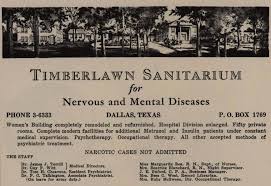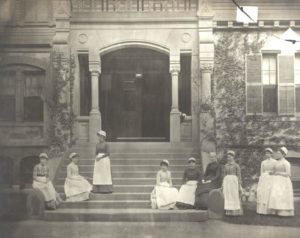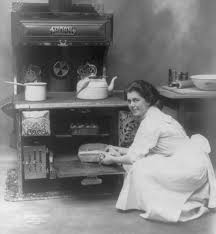
Certainly Not a Madhouse!
Words carry power, and the terminology used in psychiatric care is no exception. When asylums were first gaining popularity, the word meant a place of peace, recuperation, and sanctuary to most laypeople. The word “lunatic” or “insane” in front of it simply denoted the type of resident.
In the early years of American asylums, patients were often referred to as “unfortunates” or in other similarly sympathetic terms, but doctors soon realized that a stigma was growing around these institutions. They urged the use of words like “hospital” as more appropriate: asylums were simply places for sick minds to get well.
Going even further, sanitariums became popular as genteel places where people with nerve issues could get relief. These were many times small hospitals run by physicians . . . for the wealthy. They were private, luxurious, and generally voluntary, and patients were not burdened by the hopelessness sometimes associated with insanity. Nervousness, weak nerves, and neurasthenia were comfortable names that did not embarrass the rich.

Caregivers Outside the Adams-Nervine Asylum in Massachusetts, courtesy Historic New England
One institution that bucked this trend of catering only to the wealthy was the Adams-Nervine Asylum in West Roxbury, Massachusetts. The founder, Seth Adams, provided in his will that the institution should be “for the benefit of the indigent, debilitated nervous people who are not insane, inhabitants of the Commonwealth of Massachusetts, as may be in need of the benefits of a curative institution.” (Its charter did allow it to accept paying patients as well.)

Even a Modern Stove Required Almost 300 Pounds of Coal a Week and Produced 27 Pounds of Ash to be Sifted, courtesy Conner Prairie.org
The asylum must have been a boon to the admittedly small number of women able to go there. A Boston Globe article offered the information that “the statistics of the asylum show that of those admitted, unmarried women are in a great majority. Chiefest among the causes mentioned by the doctor as giving rise to this state of things is the fact that many of these women have worn themselves out working for and waiting upon others – daughters upon whom have devolved the weight of household cares and the nursing of invalid parents or relatives, and who have no one to fall back upon when their own strength fails.”